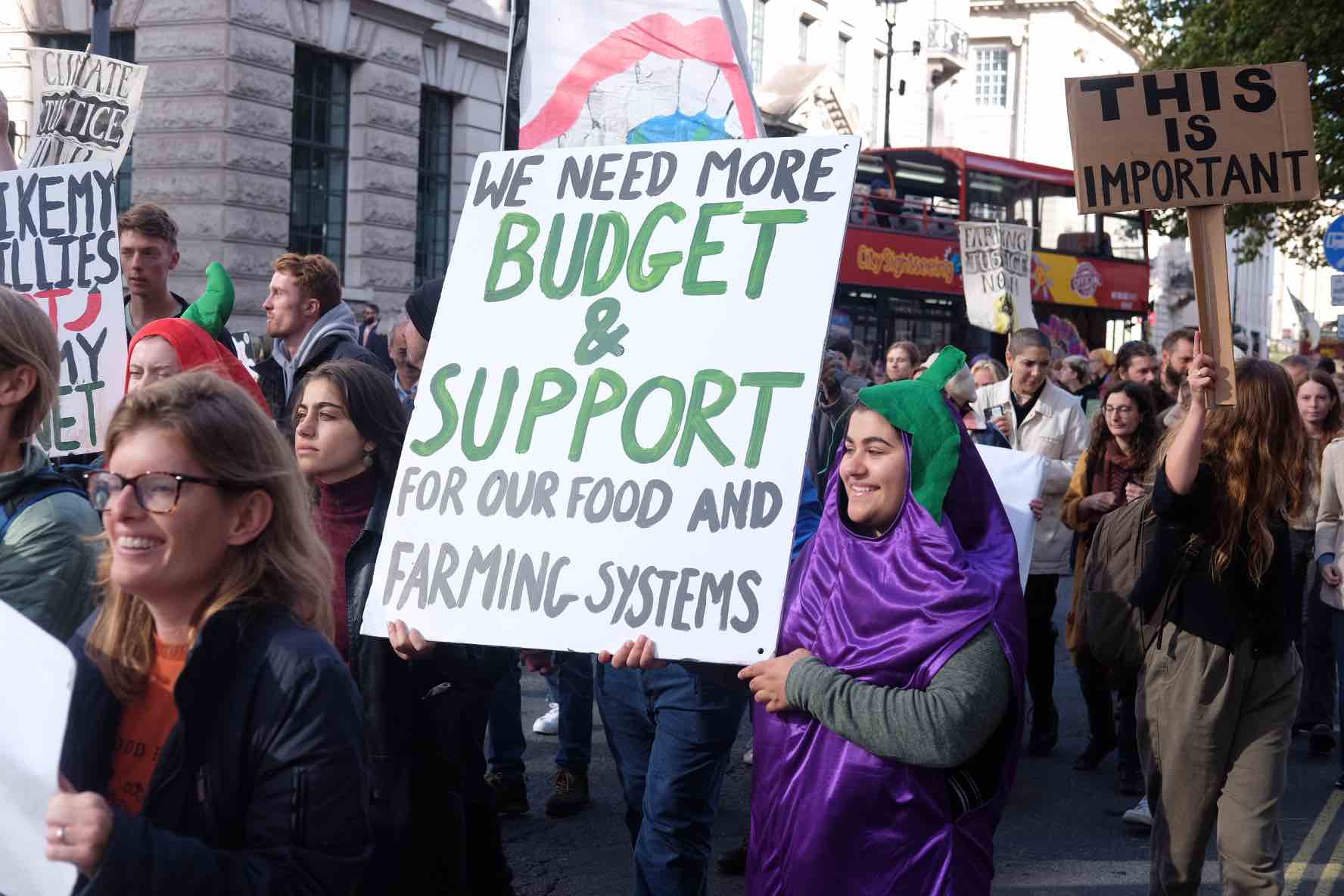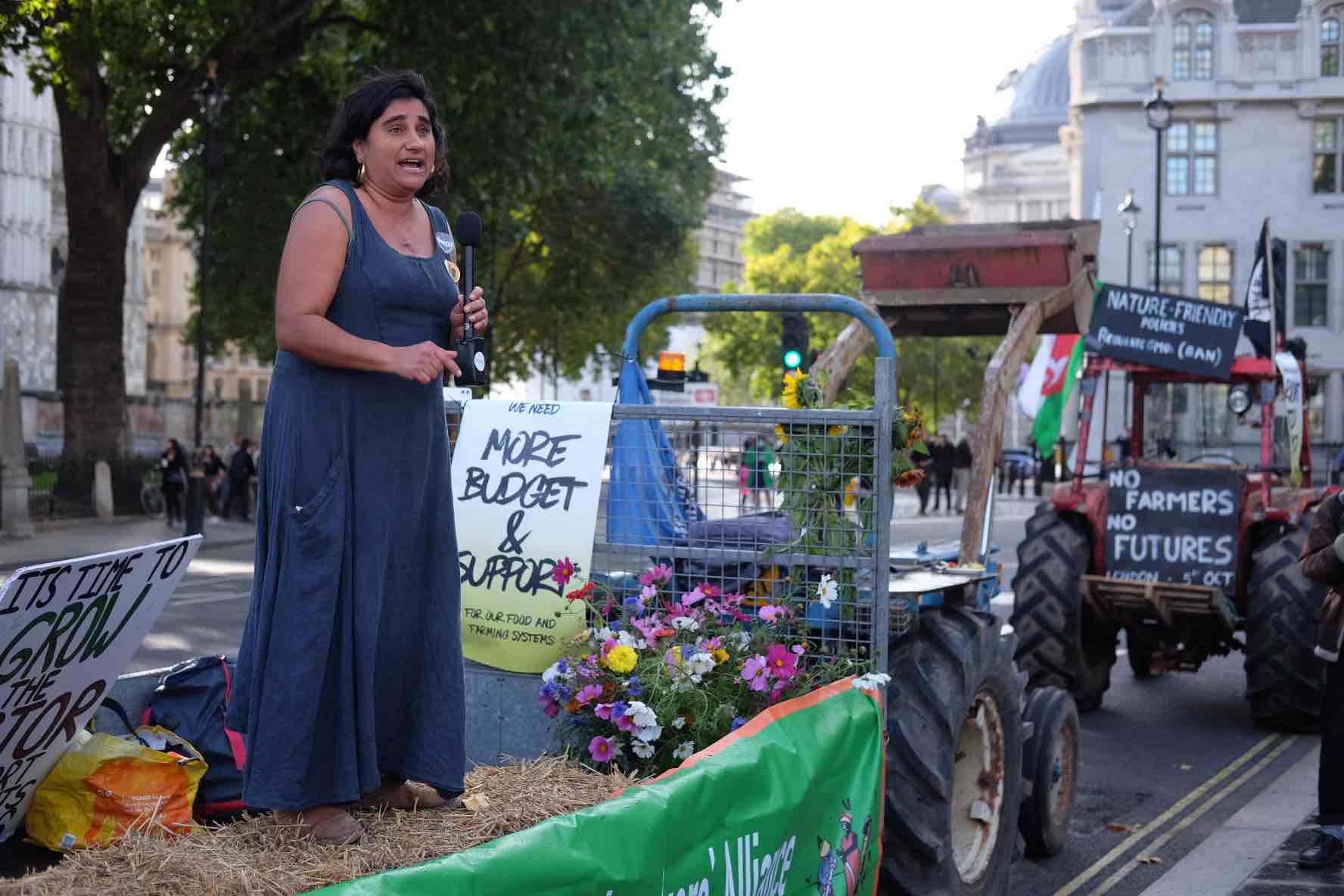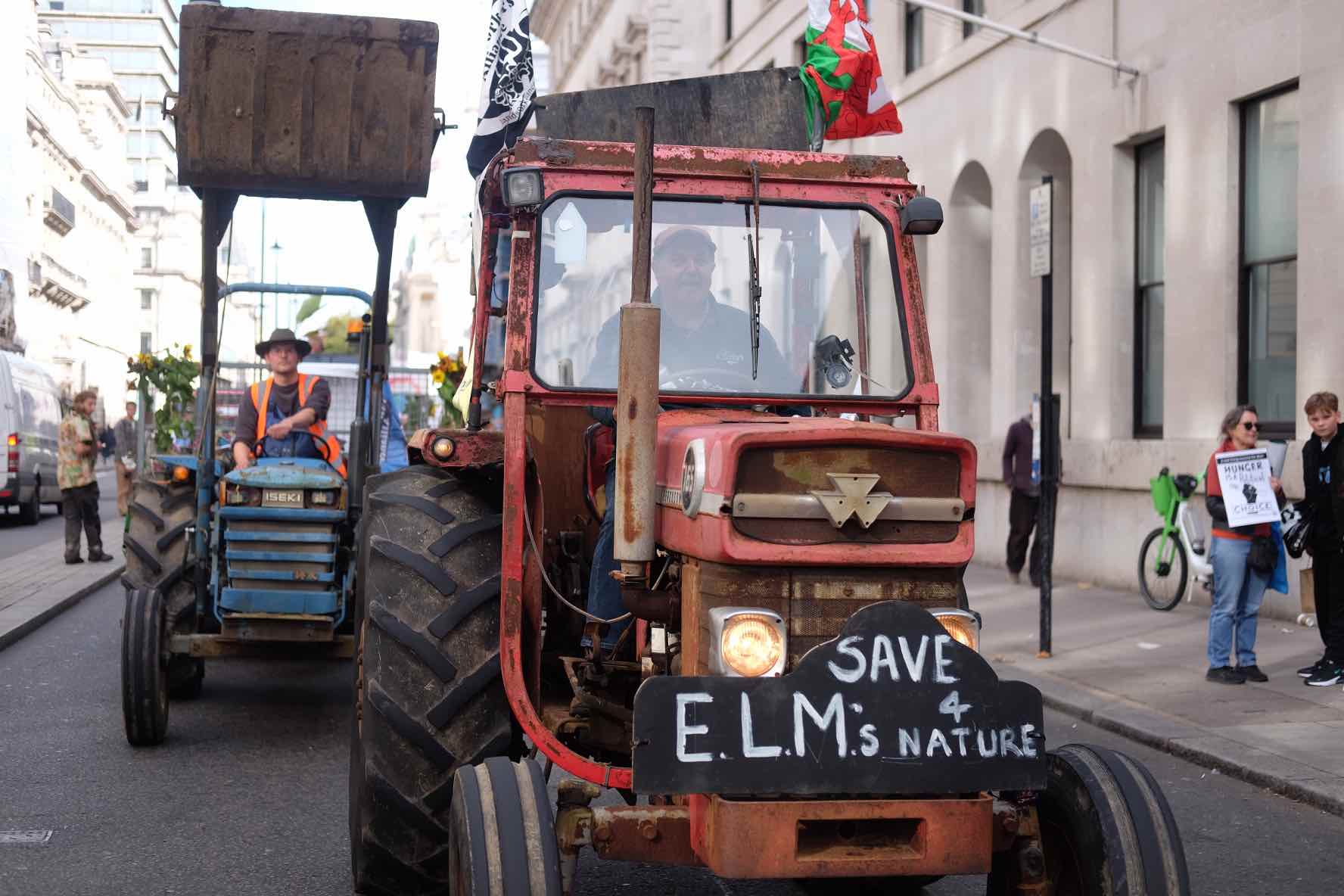
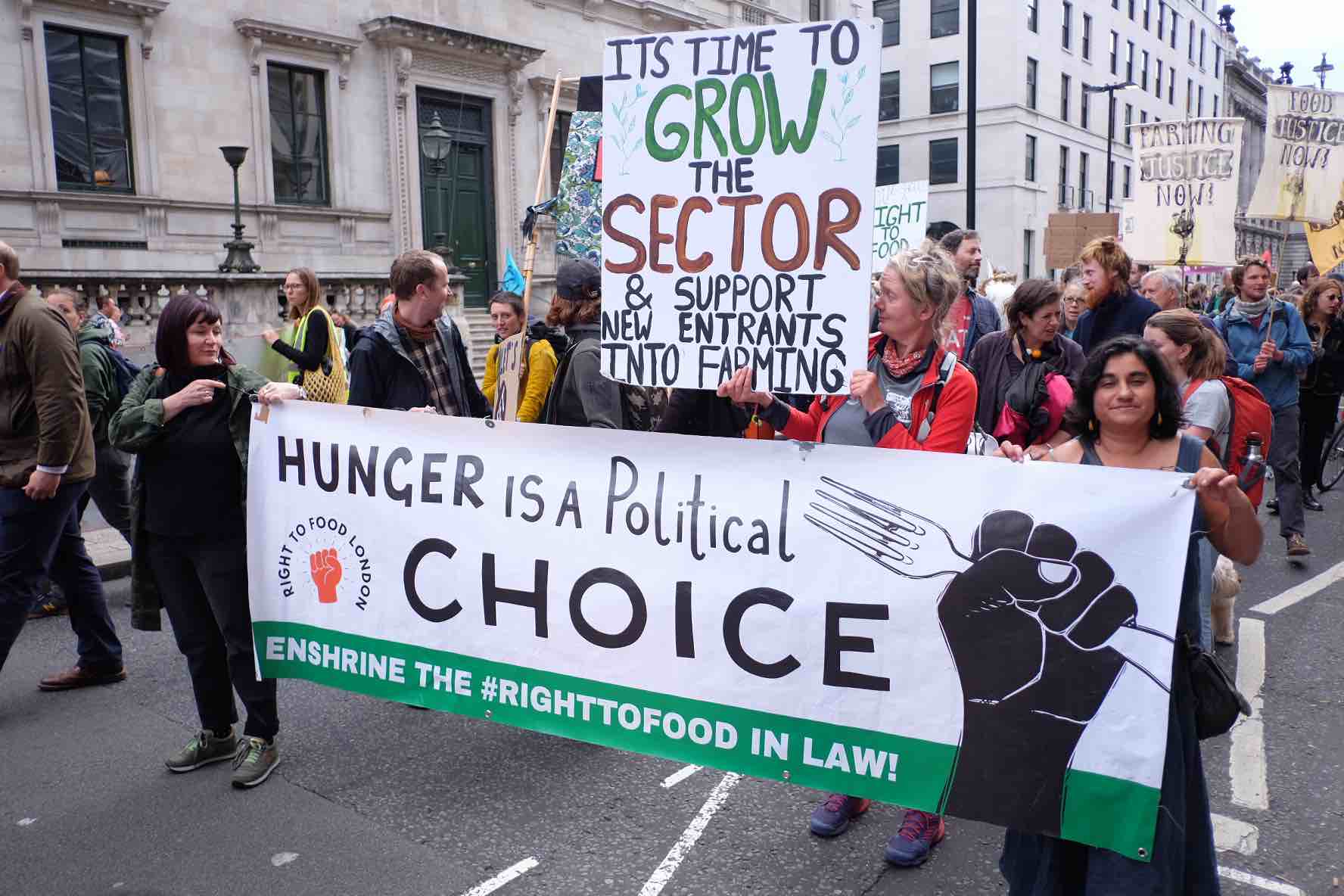
On Saturday (October 15th) hundreds of farmers, food system workers, environmental activists, land access campaigners and people who care about the future of food and farming took to the streets of London to demand that our Government raises its ambition.
During the few weeks in the run-up to the march, news circulated that England’s flagship Environmental Land Management Scheme – which is to replace the old area-based agricultural subsidy payments – is under review. And there are concerns that it could be scrapped entirely by the new Farming Minister Mark Spencer.
Read our blog post ‘What’s going on with ELMS?’
At a time when the cost of living is spirally out of control, farming livelihoods are under threat by new international trade deals, and nature is under attack by the government’s growth-at-all-costs agenda, now more than ever we must take action to ensure a transition to agroecological farming and food system which is grounded in the Right to Food.
Jyoti Fernandes, the Landworkers’ Alliance Policy and Campaigns Coordinator and co-organiser of the march said:
“We are marching for a properly funded Environmental Land Management Scheme and new entrants scheme to create good jobs and truly sustainable growth for both rural and urban communities. We are marching because we don’t want to see the budget for our hard working farmers and growers hijacked by investments in vertical farms and robots when there are people who want jobs producing healthy local food.
We are furious that while we are pushing ahead with a just transition in our food system, the Government is pushing ahead with trade agreements that support corporations yet undermine our environmental and animal welfare standards instead of opening up public procurement opportunities for farmers to sell healthy, local food to schools and hospitals.
We will no longer stand for our public money being handed to systems which destroy our planet when we are at the most important moment in history for a just transition to a fair food and farming system fit for future generations.”
Dr Richard Benwell, CEO of Wildlife & Countryside Link, the largest environment and wildlife coalition in England, said:
“A thriving and sustainable agriculture sector leads to fairness for farmers, increased food security, and healthy nature. £2.4billion investment to support the future of farming – which is three quarters of our land – is a bargain at the price. But only if that money pays for public goods. The Government should increase the farming budget, paying handsomely for the greenest regenerative farming methods.
“Fairness for farmers depends on a strong regulatory foundation. Rather than bulldozing the rules, the Government should ensure that high standards are set and enforced, both for domestic production and international trade. That will ensure the greenest farmers aren’t undercut.”
Chris Packham, one of the UK’s leading naturalists and wildlife TV presenters, and an award-winning conservationist, said:
“The combined effects of the increasing costs of living, the diminishing ability of the UK to feed itself and the parlous state of much of our countryside mean we are in big trouble – and yet this government has decided to launch an attack on all three of these catastrophes. So supporting our farmers right now is absolutely VITAL – especially those who want to farm in a way that works harmoniously with nature and those who work so hard to maintain or increase our biodiversity.
These farmers are the true stewards of our countryside and those trying hardest to produce food sustainably . If the government fails to reform subsidy payments and dumps the ELMs program then these farmers’ hands will be tied. We need to protect good farming, ethical food production and ensure that public money provides public goods in terms of wildlife and the planet.”
The march was part of a European-wide Good Food, Good Farming Day of Action to coincide with World Food Day on October 16th.
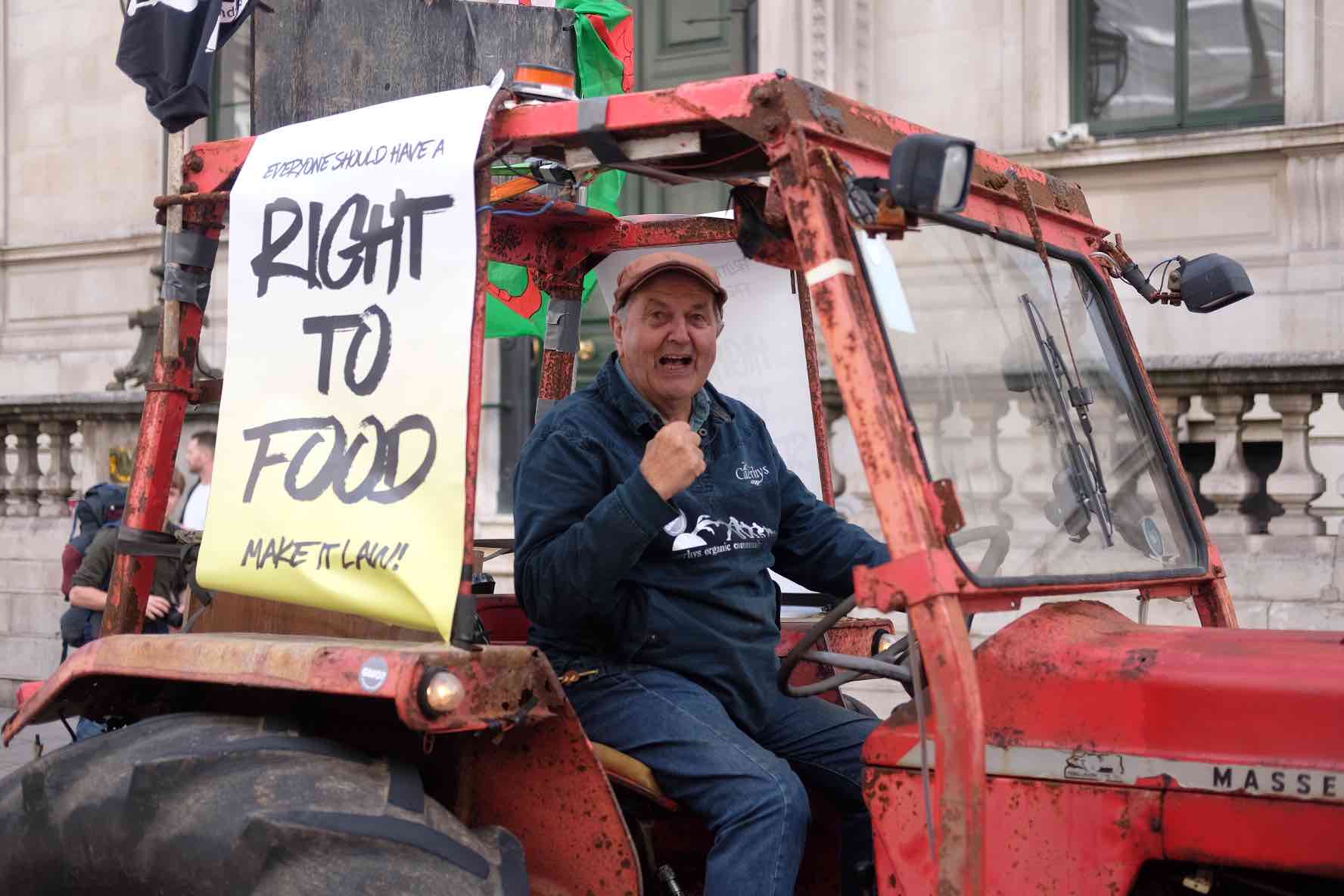
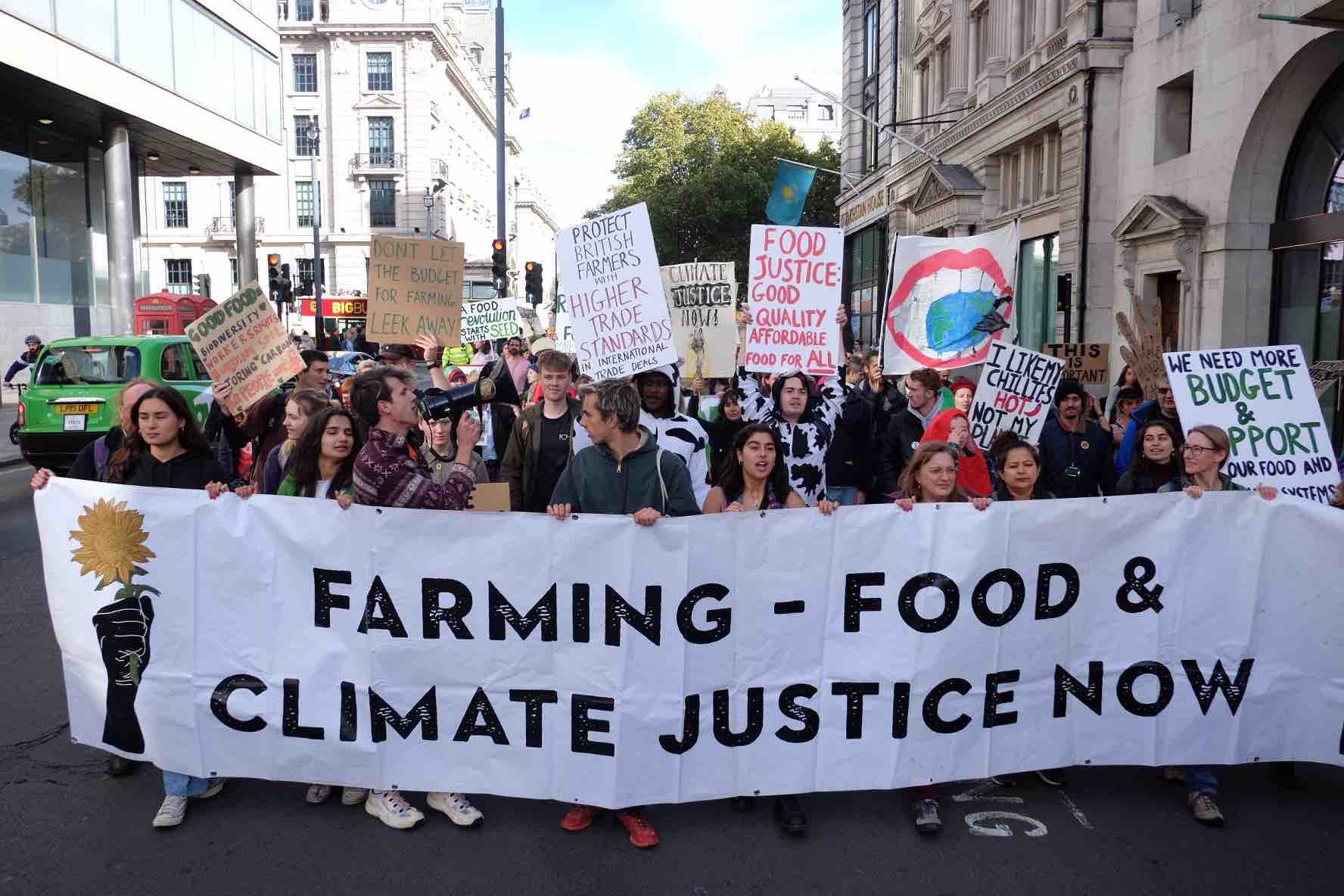
Gerald Miles, 74, LWA Coordinating Group member and organic farmer from Pembrokeshire, said:
“The government needs to get its act in gear and look after this country instead of looking after the rich and really invest in the countryside and farmers that produce food, which is the backbone of the country. If they want to offer incentives to farmers to get greener to combat the climate crisis they need to keep ELMs (environmental land management schemes) going and give grants to young farmers and young growers to start. It’s simple and common sense.”
Guy Singh-Watson, the founder of organic veg box company Riverford, said:
“We have already waited too long for a coherent food and farming policy post Brexit. Dogmatic reverence for market forces will never deliver the considered, well implemented solution that embraces the complex regionally specific needs of people, health and the environment; we need brave, considered and intelligent leadership in contrast to the abject abdication of responsibility we have seen from this government”.
Hamish Evans, 24, is Head Grower and co-founder of Middle Ground Growers, a community interest company established in winter 2019/20. He said:
“We are supported by thousands of local people, but an objection from just a few neighbours after we were given planning permission for a solar barn and polytunnels resulted in a year-long legal battle that has cost our start-up business over £12,000. It has gone all the way to the Secretary of State for the Environment who backed us, but now the objectors have challenged that decision, which means we face more costs we can’t afford and at least another six months of uncertainty and stress.
Our dream of an ecological farm, which could be a model for other cities, has been severely set back by an outdated planning system, which blocks the emergence of environmentally friendly small-scale farming, while encouraging ‘business as usual’ farming practices, which erodes soil health and biodiversity.”
Jo Kamal, LWA’s Food Sovereignty Movement Building Coordinator said:
“I have a vision of wanting to lead and create a CSA (Community Supported Agriculture) that is led by and centres [queer] people of colour. But there are barriers to this. Defra needs to go beyond just ‘welcoming’ people from marginalised backgrounds into the farming sector, we need opportunities that actually prioritise people from marginalised backgrounds.”
“We need agroecological farming and food growing to be integrated into curriculums, school curriculums, and for it to be presented as a possibility from a young age so that people can actually think about it early on in their lives as a viable career choice.”
Couldn’t make it on the day?
You can still take action to defend our food and farming system by joining our letter-writing campaign to #SaveELMS, and to gather more support for the #RightToFood movement.
